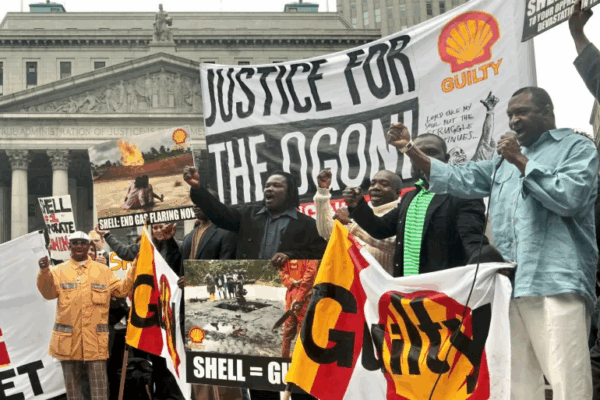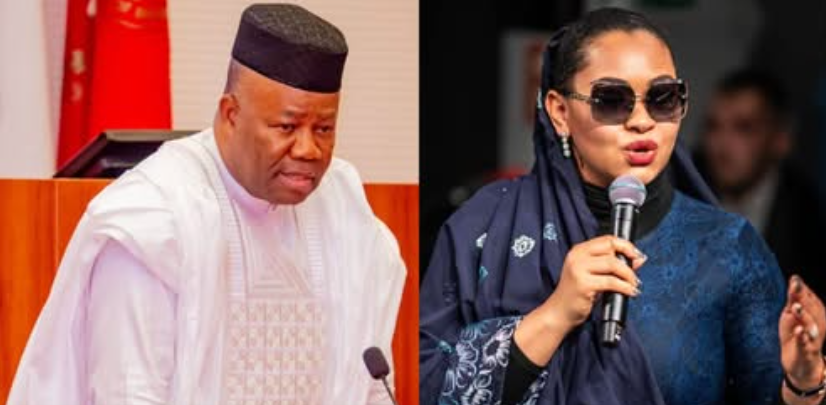
Nigeria Pardons Ken Saro-Wiwa and Ogoni Nine, 30 Years After Execution
Lagos, Nigeria – On June 12, Nigeria’s Democracy Day, President Bola Ahmed Tinubu granted posthumous pardons to Ken Saro-Wiwa and eight other environmental activists known as the Ogoni Nine, executed by the military regime of General Sani Abacha in 1995. The announcement came with national honours and a declaration: they are now national heroes. For many, it was a long-overdue vindication. For others, including the families of the executed men, it is too little, too late. Saro-Wiwa, a celebrated writer and leader of the Movement for the Survival of the Ogoni People (MOSOP), was convicted by a military tribunal for inciting the murder of four local chiefs—charges widely condemned as politically motivated. The execution, carried out by hanging on November 10, 1995, triggered international outrage. Nigeria was suspended from the Commonwealth, and countries including the U.S. imposed sanctions. “I want the convictions quashed, not pardoned,” said Noo Saro-Wiwa, Ken’s daughter, speaking from London. “A pardon suggests guilt. My father committed no crime.” A Writer Turned Activist Ken Saro-Wiwa once aspired to be remembered as a writer. He authored more than two dozen books, including the prescient short story Africa Kills Her Sun, a fictional account of a man facing execution. But his legacy was shaped by his real-life advocacy. In the 1990s, Saro-Wiwa led a non-violent campaign demanding environmental justice for Ogoniland, a small region in Nigeria’s oil-rich Niger Delta devastated by oil spills and gas flaring. In 1993, MOSOP mobilized 300,000 Ogonis to protest against Shell and the federal government. The scale of the protests prompted Shell to halt operations. The military responded with brutal force. Saro-Wiwa’s calls for autonomy and environmental reparations drew global attention—and local ire. Following a mob killing of four Ogoni leaders during a MOSOP rally in 1994, the military arrested Saro-Wiwa and eight others. Their trial, marred by irregularities and alleged torture, was condemned by Amnesty International as a “sham. International Outcry, but No Justice Despite appeals from global figures like Nelson Mandela and the Pope, the executions went ahead. Saro-Wiwa reportedly uttered, “Lord, take my soul, but the struggle continues,” before being hanged. In 2009, following a civil lawsuit in the U.S., Shell agreed to a $15.5 million out-of-court settlement with the families of the Ogoni Nine. The company denied wrongdoing, saying the payment was for legal fees and humanitarian aid. A separate case in The Hague filed by the widows of the executed men was dismissed in 2017. Meanwhile, a 2011 UN report found benzene levels in Ogoni water up to 900 times higher than safe limits. The clean-up project launched in 2012—Hydrocarbon Pollution Remediation Project (HYPREP)—has made limited progress. Though Shell has contributed $270 million, critics say the Nigerian government has underfunded and neglected the initiative. Political Motives? For some, Tinubu’s timing raises suspicion. Nigeria is battling a financial crisis and seeking to boost oil production. Resuming operations in Ogoniland—halted since the 1993 protests—could generate 500,000 barrels of crude per day. “The pardon is political,” said Nubari Saatah, president of the Niger Delta Congress. “The state needs oil, so it needs Ogoni consent.” But consent seems unlikely. Many Ogonis remain wary of government promises. Old wounds remain unhealed, especially among the families of the four men whose deaths in 1994 led to the arrest of the Ogoni Nine. Tinubu’s pardon did not mention them. “Rather than bring healing, it’s reopened divisions,” Saatah said. The Legacy Lives On Now 49, Noo Saro-Wiwa has returned to Ogoniland several times. A travel writer based in London, she’s working on a new book about the environmental devastation in her ancestral land. Her family has suffered deeply—her brother and mother have since passed away—but she continues the struggle her father died for. “My father was a real David versus Goliath,” she said. “He made the world see Ogoni. What he did was incredible.” For Ogoni people, and for Nigeria, the question remains: Is symbolic honour enough, without justice or restitution?

